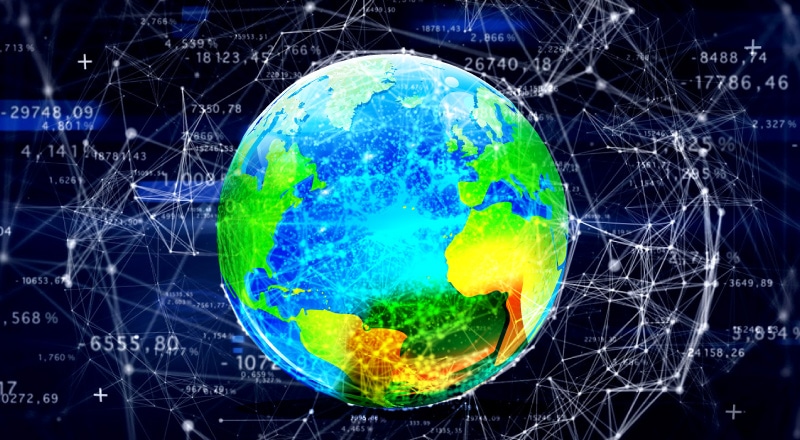In a world where technology is king, keeping on top of all the latest goings-on in the industry is no mean feat. Occasionally, developments crop up though which really grab your attention due to their far-reaching implications, as is the case this week. With the emergence of a new class of internet plutocrats and the rapid evolution of the Chinese gaming industry, our editors share their favourite stories that have made it into the press.
We start with Rosemary Barnes' recommended read of the week.
Internet Plutocrats
I was drawn to an article that talks about how Silicon Valley is amassing vast wealth and power and how the world has changed

Rosemary Barnes
Editor
since the emergence of tech giants.
Dominic Frisby wrote the article which featured in Money Week. In medieval England, there were three axes of power – the crown, the church and the barons which in modern times evolved into the state, large corporations and the media. He goes on to talk about how they are now being enormously disrupted by the internet and the new tech giants such as Google, Amazon, Facebook, Uber, AirBnB, Apple.
He writes: “From a superficial point of view, these forces are liberalising and empowering. Thanks to Amazon, you no longer have to persuade some gatekeeper in an office of your worth. If you want to publish a book, you can self-publish and let the market decide if it’s any good or not."
Masses of opportunities, which didn’t previously exist, have been created. But there is a darker side as Frisby explains - companies went bust and many lost their jobs. The dynamic is that some new digital company comes along, changes an existing way of doing something, brings loads of new entrants to a marketplace, the new entrants love it and the old players are disrupted. This new wave is creating many opportunities, but in terms of the global power structure something is changing.
You may now have your own YouTube channel or blog but you now have a feudal overlord to whom you must pay your tithe, and his name is Google.
Although these companies have dramatically improved the quality of people’s lives, the reward for the service they are giving you is increased wealth and power for them.
Frisby suggests that the internet plutocrats may fall victim to their own model and quickly be disrupted, just as they disrupted others. Only time will answer that one but corporations and the media are most definitely ceding power to the internet plutocracy.
When the next wave of technological change comes – virtual reality, Blockchain tech, robots, artificial intelligence, driverless cars and all the rest of it – that cession of power is only going to quicken.
We move onto Michael Pearl's contribution...
China's New Weapon
China’s penetration to almost any major economic sector around the world is no news, nor its will to dominate each sector upon

Michael Pearl
Head Of Business Intelligence
entering it. We see how Chinese technology, for instance in the field of smartphones, went from cheap, low quality to premium in less than a decade. However, from time to time, there is still news coming from the Chinese Acquisition scene that manages to surprise us.
During the last few years, the Chinese gaming industry has evolved rapidly, but it mostly targeted a local audience. But last month, China has become a paramount player in the $100 billion a year global gaming industry almost overnight, after its internet behemoth Tencent purchased the Finnish video game developer Supercell for $8.6 billion. After the purchase, Tencent will control around 13 percent of the global gaming industry.
On a broader scale, this acquisition is another milestone in a far greater project, lead by the Chinese government. According to an article “China's New Weapon? Video Games”, published in BloombergView this week by Adam Minter, Beijing has spent billions of dollars on exporting Chinese culture and art, for the purpose of promoting their values abroad.
This project, a form of 'soft power' well known from the years of cold war, was not particularly successful when it comes to online videos and reality shows. But once it entered the gaming zone, it holds the potential of hitting the jackpot with respect to spreading Beijing’s word in the western world.
As I mentioned earlier, in other words, China is the fastest growing country in the world, regarding the penetration of global markets. Until now, this 'occupation' was mostly on a commercial level, but the aforementioned process might be a sign of change. So, will Chinese games and other cultural products become ambassadors of Beijing, just like Disney and Coca Cola are for Washington? Time will tell.
We conclude another week of stories that our editors are reading.
Feel free to share your views in the comment section and any recommendations of your own. We’d love to hear from you!
Check out our previous posts here:
Gold Standard After Brexit and a matter of National Identity
Genetically Edited Humans And Electronic Persons
Computerised Storytelling And Quantitative Easing Doldrums
Eyeing Up This Year’s Biggest Tech IPO And The Search For Quantum Questions
Financial Efficiencies And Inefficiencies
The Bank Robber And The Psychologist
Fly Me To The Moon….And Bremain In The EU
Brexit: Ice-Cream Magic Or An Artistic Defeat
Virtual Reality and the Dark Side of Shaming






















